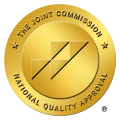Outsource Borderline Personality Disorder Treatment to Raise Rehab Profits
Running a rehab facility can be both rewarding and daunting, especially when considering profit margins. One way to improve a facility’s bottom line is to focus entirely on rehab treatment and outsource borderline personality disorder treatment to experts. Outsourcing not only saves the facility money but also keeps the staff mission-focused and improves overall patient care.
What is Borderline Personality Disorder?
Borderline personality disorder is a condition in which a person has an unreasonable fear of being alone or abandoned.1 These individuals face challenges with how they think about themselves. Even though a person with borderline personality disorder wants stable relationships above all else, their mental health disorder often causes people to turn away from them and their erratic behavior.
Symptoms of Borderline Personality Disorder
Individuals with borderline personality disorder often display extreme mood swings, with anger being at the center of emotions.2 They will likely have a history of unreliable relationships. It is also common for individuals with borderline personality disorder to engage in risky behaviors, including drug use, gambling, and sexual encounters. It is not unusual for them to become suicidal or prone to self-injury when their paranoia of abandonment gets out of control.
Symptoms of Addiction
Addiction is when someone needs to use a substance, such as drugs or alcohol, to prevent withdrawal symptoms such as sweats, shaking, and vomiting.3 The individual’s body is used to the substance and requires it to function without negative consequences. Individuals with substance use disorder (SUD) may suffer from insomnia, nightmares, or hallucinations while using the substance or as withdrawal symptoms, if substance use stops.
How is Borderline Personality Disorder Related to Addiction?
It is not uncommon for individuals with mental health conditions to turn to illicit drugs in an effort to cope with their symptoms. They may seek drugs to avoid stressors or to calm the manic symptoms associated with borderline personality disorder. Some individuals may use drugs just so other people will like them. The social aspect of using drugs is important when considering co-occurring disorders of addiction and mental illness.
Causes of Borderline Personality Disorder
Like most mental health conditions, the underlying cause of borderline personality disorder is unknown. Research suggests it could be caused by either genetics, environmental factors, or a combination of both. Studies of borderline personality disorder in twins have shown that it can be genetic. However, just because a family has this disorder, it does not mean their children are always more likely to be born with it than the general population.4
Environmental factors that may play a part in causing bridlelike personality disorder include diet, poverty, and a stressful upbringing. It is also possible the cause of the disorder can be found in the structure and functioning of the brain.
Diagnosing Borderline Personality Disorder
As with other mental health disorders, there is not a single test to diagnose borderline personality disorder and determine the needed treatment. Certain issues complicate the diagnosis of this condition.
Complexities of Borderline Personality Disorder Diagnoses
Other mental health conditions have symptoms like borderline personality disorder. Determining a final diagnosis may come from eliminating other potential conditions based on specific symptoms.5 Conditions that can complicate borderline personality disorder treatment plans include:
- Post-Traumatic Stress Disorder (PTSD): This disorder is the result of exposure to trauma. It is characterized by flashbacks, extreme anxiety, nightmares, heightened awareness, and disassociation when triggered.
- Depression:Depression a mood disorder characterized by a continuous sense of sadness or emptiness, inability to complete daily living activities, and suicidal ideation.
- Bipolar disorder: This condition was formerly known as manic depression and is characterized by extreme mood swings, both highs (mania) and lows (depression).
- Psychosis: Psychosis is a mental disorder that includes delusions and hallucinations. It can last for a brief period, perhaps hours or days, or be a perpetual state of mind for some individuals.5
Highly trained experts can differentiate between each mental disorder. Staff at a rehab facility, however, are often not prepared to do so while simultaneously handling their rehabilitation duties. It is unlikely they have been trained sufficiently in both areas.
Treating Borderline Personality Disorder as a Co-Occurring Disorder
Partnering with experts in the mental health field benefits not only the rehab facility but also patients with psychiatric disorders. Psychiatrists can treat individuals with this mental disorder. They also can provide consultation to rehab facility staff who are treating patients with a co-occurring disorder.
How Psychiatrists Can Help
- Psychotherapy: Cognitive-behavioral therapy (CBT) is a type of talk therapy that helps a patient understand negative thinking patterns and learn to not act on those thoughts. Dialectical behavior therapy (DBT) is a form of CBT specifically created for borderline personality disorder treatment. Behavioral therapy can be conducted individually or in group settings to help patients better understand and change their thinking patterns.
- Medications: Individuals with borderline personality disorder often find psychiatric medications helpful in reducing symptoms. Psychiatrists can prescribe appropriate medication to help patients cope daily with their mental disorders.
Taking advantage of psychiatric expertise gives a rehab facility credibility with patients who suffer from co-occurring disorders. Having a psychiatric expert on hand also provides comfort to loved ones of patients knowing they are being taken care of both physically and mentally.
Challenges to Treatment Facilities That Lack an Expert in Borderline Personality Disorder
- Ineffective Treatment: By ignoring the necessary borderline personality disorder treatment, additional treatment may be a waste of time. Without understanding the relationship between SUD and borderline personality disorder, and then addressing both simultaneously, the addiction treatment will prove unsuccessful.
- Harmful Treatment: Positive interactions with an individual who has a mental health disorder requires knowledge of their condition, possible triggers, and personal information on how best to communicate. A rehab facility that does not know how to do this can end up harming a patient who needs borderline personality disorder treatment.
- Relapses: The last thing a rehab facility wants is for a patient to relapse. Relapse can occur for a variety of reasons. General frustration with life is a common reason for relapse in those with mental health disorders. Relapse can also be the result of failed addiction treatment if the mental health disorder takes precedent in the individual’s life while in rehab.
Knowing how to properly care for individuals with co-occurring substance use and mental health disorders impacts treatment programs. It is up to the facility as to whether the impact is positive or negative. The outcome for the program will be the same outcome for patients.
Why a Treatment Facility Should Outsource Borderline Personality Disorder Treatment
A rehab facility wants to provide the best treatment for every patient. When treating a substance use disorder, it is common to find co-occurring issues such as medical complications or mental health conditions that can impact rehab outcomes. Using outsourced partnerships to address co-occurring issues provides several benefits:
Addiction and borderline personality disorder are both treated successfully.
Authentic patient care becomes a priority when a facility chooses to focus on what it does best and outsources borderline personality disorder treatment. Partnering with mental health experts demonstrates a facility’s commitment to treating patients who have both SUD and borderline personality disorder.
Paperwork is reimbursed timely and accurately.
Turning over coding and billing responsibility for a particular service reduces the amount of time staff spend on this function. It allows for faster results and increased revenue because it is accurate, complete, and done by experts.
Malpractice claims and lawsuits are avoided. When a facility focuses solely on what it is best at, it minimizes risks for lawsuits. Even if a patient is not happy with outcomes, the facility can avoid lawsuits if they provided appropriate care. This care includes outsourced borderline personality disorder treatment
Outsourcing borderline personality disorder treatment not only saves a rehab facility money by improving reimbursement times but also improves the facility’s reputation. Most importantly, it successfully improves the lives of individuals with substance use disorders and co-occurring mental health disorders. Providing the highest quality patient care possible is the goal of every rehab facility.
Resources
https://www.nimh.nih.gov/health/topics/borderline-personality-disorder/index.shtml
https://www.borderlinepersonalitytreatment.com/nimh-bpd-brochure.html
https://www.drugabuse.gov/publications/drugs-brains-behavior-science-addiction/drug-misuse-addiction
https://www.nimh.nih.gov/health/publications/borderline-personality-disorder/index.shtml




